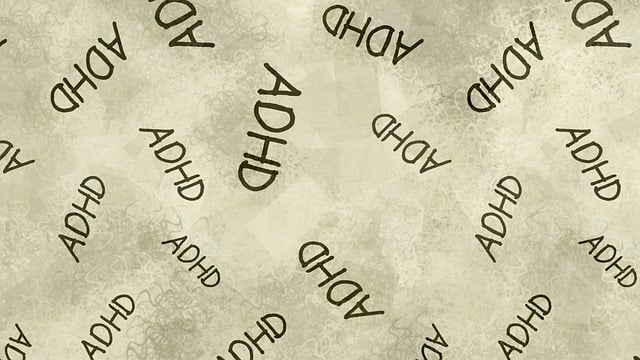Mental health policies play a pivotal role in enhancing well-being, especially for vulnerable groups like children and cancer patients. Tailored emotional healing approaches, including podcasts and mindfulness meditation, improve access to therapy. Advocating for evidence-based practices, such as compassion cultivation and stress management techniques, is crucial for pediatric cancer patients' unique mental health needs. Despite global awareness, significant gaps persist in accessible services for youth therapy, particularly for anxiety, depression, and cancer-related stress. Advocacy drives policy changes, focusing on funding and implementing specialized therapy programs, like anxiety relief initiatives based on emotional regulation techniques. Evaluating policies requires a comprehensive approach, combining quantitative data with qualitative methods, including surveys and listenership analytics, to assess program effectiveness in improving children's mental wellness.
Mental health policy analysis is a critical component in advocating for vulnerable populations, especially those facing cancer. This article delves into the profound impact of mental health policies on children with cancer, highlighting unique challenges and global trends. We explore strategies to drive change through advocacy, focusing on innovative approaches to therapy for children’s cancer issues. By examining current gaps and successful interventions, this analysis aims to guide policymakers in creating robust mental health services tailored to young patients’ needs.
- Understanding Mental Health Policy and Its Impact on Vulnerable Populations
- The Unique Challenges of Children's Mental Health in Cancer Care
- Current Global Trends and Gaps in Child and Adolescent Mental Health Services
- Advocacy Strategies to Drive Change in Mental Health Policy for Children with Cancer
- Measuring Success: Evaluating the Effectiveness of Mental Health Policies and Interventions
Understanding Mental Health Policy and Its Impact on Vulnerable Populations

Mental health policy is a crucial framework that guides the development and implementation of services, interventions, and support systems aimed at enhancing mental wellness across diverse communities. It plays a pivotal role in ensuring access to quality therapy for vulnerable populations, including children and those grappling with cancer-related issues. Understanding these policies is essential to addressing the unique challenges faced by these groups.
Vulnerable populations often require tailored emotional healing processes that cater to their specific needs. For instance, integrating mental wellness podcasts and mindfulness meditation techniques into therapeutic practices can be immensely beneficial. Such initiatives not only improve access to mental health support but also foster a sense of community and resilience among individuals facing adversity. By examining and advocating for evidence-based policies, we can significantly contribute to the overall well-being and development of these populations.
The Unique Challenges of Children's Mental Health in Cancer Care

Children’s mental health within cancer care presents a unique set of challenges that demand specialized attention and tailored strategies. Young patients often struggle with the psychological impact of their diagnosis and treatment, which can include anxiety, depression, and post-traumatic stress disorders. These emotional struggles may be exacerbated by the disruption to their normal routines, social interactions, and overall sense of security. The cancer care environment, characterized by intense medical procedures and a focus on physical health, may not adequately address the psychological well-being of children, highlighting the critical need for integrated mental health support.
The integration of therapy for children with cancer issues, such as compassion cultivation practices and stress management techniques, is essential to enhancing their mental wellness. These interventions can help young patients develop coping mechanisms, foster resilience, and maintain a sense of hope during their journey. By prioritizing the unique psychological needs of pediatric cancer patients, healthcare providers can significantly improve both the quality of life for these children and their overall outcomes.
Current Global Trends and Gaps in Child and Adolescent Mental Health Services

In recent years, global mental health policy has seen a growing recognition of the unique challenges faced by children and adolescents. However, despite increasing awareness of mental health issues among young people, there are still significant gaps in services worldwide. According to various studies, youth-focused mental health care often lags behind adult services, with limited access to specialized therapy for conditions like anxiety, depression, and even more severe issues such as cancer-related stress. This disparity is particularly concerning given the vulnerability of children and adolescents during stressful life events.
The current global trends indicate a pressing need for integrated and accessible mental health support systems. Many countries are beginning to address these gaps by implementing policies that promote early intervention and prevent the escalation of mental health disorders. By focusing on programs that enhance mental health awareness, stress management, and resilience building in schools and communities, there is hope to improve outcomes for children and adolescents worldwide.
Advocacy Strategies to Drive Change in Mental Health Policy for Children with Cancer

Advocacy plays a pivotal role in shaping mental health policies for children with cancer, aiming to improve access and quality of care. Effective strategies involve raising awareness about the unique mental health issues faced by this vulnerable population. By highlighting the impact of cancer on children’s emotional well-being, advocates can drive policy changes that prioritize specialized therapy services. This includes pushing for increased funding allocation towards anxiety relief programs tailored for pediatric cancer patients and survivors.
Implementing evidence-based practices, such as teaching emotional regulation techniques, can empower these children to cope with the stress and trauma associated with their condition. Embracing mind over matter principles, advocates argue, is essential in fostering resilience and enhancing overall mental health outcomes for children battling cancer.
Measuring Success: Evaluating the Effectiveness of Mental Health Policies and Interventions

Evaluating the success and effectiveness of mental health policies and interventions is a multifaceted process that goes beyond simple numbers. It’s crucial to assess not just the reach of programs, but also their impact on key indicators of mental wellness. This includes measuring changes in symptoms, improved access to therapy for children with cancer issues, and enhanced social skills, among others. By employing robust evaluation methods that incorporate qualitative data alongside quantitative metrics, policymakers can gain deeper insights into what works best.
For instance, the implementation of a Community Outreach Program aimed at raising mental health awareness could be assessed through surveys gauging community members’ knowledge and attitudes towards mental wellness. Similarly, the production of a Mental Wellness Podcast Series targeting adolescents might be evaluated by tracking listenership and collecting feedback on its perceived impact on their mental health. Social Skills Training programs can be measured through observations and reports from educators and parents, capturing improvements in interactions and overall well-being.
Mental health policy analysis reveals critical gaps in support for children with cancer, underscoring the urgent need for targeted interventions. By understanding the unique challenges these young patients face, we can advocate for evidence-based practices like accessible therapy for children with cancer issues, ensuring vulnerable populations receive comprehensive care tailored to their needs. Through global collaboration and innovative strategies, it’s possible to revolutionize mental health services, ultimately improving outcomes for kids battling this disease.












